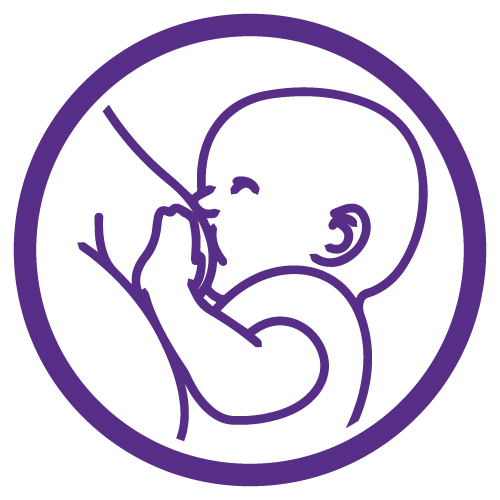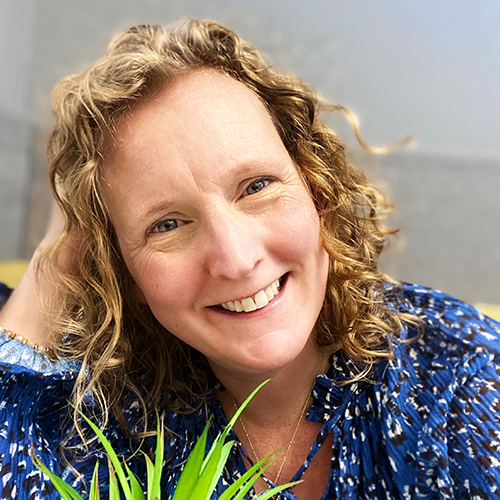
Forming Comprehensive Conversations for Common Breastfeeding Challenges Lecture Pack
Being able to put a care plan in place is only one part of our job as lactation professionals. The ability to explain things and answer parents’ questions is equally important and requires a deep level of knowledge, along with the ability to translate that knowledge into simple terms. Join our expert speakers to stay up to date on the latest research and thoughts on best practice for common clinical situations such as cow’s milk protein allergy, working with anxious parents and fussy babies, weaning from breastfeeding/chestfeeding, management of hyperlactation, the clinical use of scales, and lactation, sleep and family well being.


Rolinde obtained a PhD in applied biological sciences at Ghent University in 2011 and authored several peer reviewed articles. After a career as a scientist, she started her private practice “Op de groei”, where she works as a pediatric dietitian and lactation consultant. Rolinde has a special interest in allergies, starting solids and picky eating and is the author of several books on cow’s milk allergy and feeding in the first years of life. Rolinde is known for the critical eye with which she translates science into practical information.
1: Describe the clinical manifestations of both types of CMPA
2: Apply the gold standard for CMPA diagnosis in breastfed infants
3: Create a strategy to eliminate and substitute cow’s milk protein in the maternal diet
4: Describe how and when cow’s milk can be reintroduced in a safe way to assess tolerance acquisition
5: List 3 risk and protective factors for the development of CMPA
Cow’s milk protein allergy is one of the most common food allergies in young children, diagnosed in 1/200 breastfed infants. Both underdiagnosis and overdiagnosis can have negative implications for mother and child, underlining the importance of a timely and correct diagnosis. An adequate management of a cow’s milk protein allergy should not only focus on the correct elimination of cow’s milk proteins, but also on practical advice on adaption of family meals and nutritional adequacy for the breastfeeding mother and infant. Research shows that 85% of children develop tolerance to cow’s milk proteins, on average between the age of one and three years old. This presentation will include when and how reintroduction with cow’s milk should occur to determine acquisition of tolerance in the breastfed infant. Finally, we will discuss whether the development of a cow’s milk protein allergy can be prevented and which factors raise the risk of developing a cow’s milk protein allergy.


Anna Le Grange is an International Board Certified Lactation Consultant, Registered Pediatric Nurse, Mindfulness teacher and Author. She has worked with new families for over 20 years in a variety of clinical roles. Anna brings her passion for psychology, neuroscience and mindfulness into her lactation support work and facilitates other professionals to incorporate emotional well-being tools into their own lactation practice. Mother to 3 children, Anna breastfed her 3rd child following breast reduction surgery and experienced first-hand, the emotional challenges that so often relate to infant feeding complexities. She used her personal experiences alongside mindfulness and lactation knowledge, to create a toolbox of techniques for breastfeeding families, which she includes in her courses and book, The Mindful Breastfeeding Book. Anna believes whole-heartedly in prioritizing calm and connection within our breastfeeding support practices, both for our clients and ourselves. Anna is currently studying for a MSc in Positive Psychology at Buckingham New University and has spoken at various events including the Gold Lactation, ILactation Conference and Nurturing The Future.
Topic: Being Mindful: Case Studies of Mindfulness Tools in Clinical Lactation Practice - [View Abstract]
Topic: Breast/Chestfeeding After Breast Reduction - [View Abstract]
Topic: Working With Anxious Parents and Fussy Babies - [View Abstract]
1 - List the 3 main causes of parental anxiety
2 - Describe current incidence of parental anxiety
3 - Define the 3 main causes of fussiness in babies
4 - Explain the connections between infant fussiness and parental anxiety
5 - Describe the autonomic nervous system and how it impacts parents and babies
6 - List 5 practical interventions to use with parents and babies.
In this talk Anna Le Grange explores the causes of anxiety in parents, reasons why babies might exhibit unsettled behavior, and the links between parents with anxiety and unsettled babies. Drawing on recent studies, she shares the latest insights on the correlation between anxiety, infant fussiness and breastfeeding outcomes. Next Anna will describe the autonomic nervous system in parents and babies and how anxiety and infant fussiness may impact both members of the dyad. In the second half of this talk Anna discusses the practical steps that lactation supporters can take when working with babies and their parents to encourage a more calm and connected feeding experience.


Zoe undertakes a diverse range of roles in the field of lactation and infant and young child feeding, including holding national and international leadership roles. Zoe works in the community public health service, in Brighton UK, delivering specialist services for family with complex and persistent feeding challenges as well as supporting the implementation of Baby Friendly Standards. Previously she run the in house breastfeeding peer support program for 15 years. Zoe teaches, colleagues, student public health nurses at Brighton University and presents infant feeding topics to a broad range of audiences. Zoe is Chair of Lactation Consultants of Great Britain and in July 2022 was appointed as to the International Lactation Associations Board. Zoe is also currently Charing an expert working group, on behalf of the emerging Breastfeeding Alliance writing and mapping breastfeeding competencies of the infant feeding support workforce to increase the understanding of the unique characteristics and shared skills and knowledge of those working to support breastfeeding families. Zoe enjoys working directly with families and babies to enable mothers and parents to meet their babies and young child’s needs and achieve their desired goals throughout their breastfeeding and infant feeding journey, and weaning experience.
1. Describe three anthropological, psychological, cultural, or societal factors that influence weaning and therefore breastfeeding duration
2. List three potential contributing factors that may lead to premature weaning
3. List three potential consequences of abrupt weaning
Skilled support for weaning from the breast is often overlooked. Most policies and programs focus on initiation of breastfeeding, the continuation of lactation and support for overcoming challenges. In practice it can be harder for families to find information, support, and guidance to wean, whatever stage of their breastfeeding journey. Often it is perceived that support for breastfeeding is all about continuing. Like breastfeeding, weaning has socio-cultural, biological, immunological, physiological and anthropological considerations, and affects the physical and mental health of both mother and child. This talk will explore the many considerations, and complex interplay between multiple factors, that the infant feeding support workforce need to understand to meet the support needs of families. We will explore: the child’s developmental readiness, emotional, immunological, and nutritional needs, and what the milk and relationship mean to them. We will also look at the impact on the mother: what we know about how the pace of weaning may impact the lactating parent’s breast health and wellbeing and how to meet the evolving needs of their baby. And finally, we look at the dyad collectively. Supporting a positive ending to breastfeeding is an essential part of the skills and knowledge of lactation professionals.


After experiencing poor lactation care from an IBCLC with her first, Summer immediately knew she wanted to change her career path by becoming an IBCLC. She knew then that she could help make a difference and change it so that more families could have GREAT lactation care! That path started by Summer being "raised" by La Leche League, going to support groups and becoming an Accredited Leader and then sitting for her IBCLC Boards. After 5 years of LLL Leadership, She weaved her way into the clinical setting and spent 10 years as the hospital IBCLC giving GREAT care to postpartum families. In 2019, she moved onto her next chapter, left the hospital world, and now has been operating her full-time private practice helping local families in Kansas City and virtually helping families all over the world. Additionally, Summer has a YouTube channel which is her way of continuing community outreach in a relevant way for the fast-paced social world. She really loves creating videos that are short, bite-sized and easily digestable so that families can watch at any hour of the day, many tell her, even while breastfeeding and pumping!
Define weight loss expectations, weight gain expectations and variability within normal limits. (10min)
Describe the risks of overuse of infant scale use clinically and casually in parent’s own homes. (15 min)
Explain when scales can be helpful and when their use may negatively impact lactation goals for
Families. (20 min)
Provide education and tools to families for evaluating the big picture of their child’s well being, using indicators of thriving independent of scale use. (15 min)
Weighing of babies dates back to ancient Egypt times, but scales and measurement of babies became more widely used in the 18th and 19th century. Fast forward to the 21st century and the use of the neonatal scale has taken on a life of its own in developed countries. Many families of healthy, low risk newborns own a scale at home; it might even be built into their changing table. IBCLCs, pediatricians, and family medicine doctors also have access to infant scales for clinical use. How has the use of scales changed lactation support and parents’ perceptions about lactation progress? Are there ways to refocus on the basics of lactation and infant care without over-reliance on the infant scale as a tool?
In this presentation we will examine the practical, technical and proper use of infant scales for the clinician. We will discuss the appropriate timing of scale use as well as describing times at which scale use might be detrimental to the dyad. We will look at common pitfalls with scale usage and how best to avoid or navigate them with a family. We will cover ways to educate and empower parents with tools for evaluating their child’s well-being throughout the lactation journey without the use of an infant scale.


Divya Sinha Parikh MD, IBCLC, FAAP is a board certified pediatrician practicing in Columbus, OH. She received her medical training at The University of Pittsburgh School of Medicine and completed her residency in general pediatrics at Rainbow Babies and Children’s Hospital at Case Western Reserve University. She formerly served on the Baby Friendly Hospital Initiative Committee at MetroHealth Hospital Systems in Cleveland, OH and created a breastfeeding medicine clinical rotation during residency. Her work has been presented in local and national meetings.
1. Explain the pathophysiology behind hyperlactation
2. Describe the process of thoroughly evaluating a patient with hyperlactation and providing evidence-based care recommendations
3. Create a plan for referral to breastfeeding-knowledgeable medical provider and appreciate the interventions that are available for treatment of hyperlactation
The objectives of this lecture are to understand the definition, pathophysiology, and basic management of hyperlactation. Topics discussed with include proposed mechanisms leading to hyperlactation, health effects on mother and baby, and approach to diagnosis and management. Participants will learn key history and physical findings for hyperlactation, behavioral interventions to reduce milk supply, herbal and medical interventions to reduce milk supply, and will learn how to determine which dyads would benefit from medical intervention.


Joy MacTavish, MA, IBCLC, RLC is an International Board Certified Lactation Consultant and certified Holistic Sleep Coach focusing on the intersections of infant feeding, sleep, and family well-being. Through her business, Sound Beginnings, she provides compassionate and evidence-based support to families in the greater Seattle area, and virtually everywhere else. She entered the perinatal field in 2007 as birth and postpartum doula, and childbirth and parenting educator. Joy holds a Master of Arts in Cultural Studies, graduate certificate in Gender, Women and Sexuality Studies, and two Bachelors degrees from the University of Washington. She enjoys combining her academic background, analytical skills, and passion for social justice into her personal and professional endeavors. Joy serves as an Advisory Committee Member and guest speaker for the GOLD Lactation Academy. When not working or learning, she can be found homeschooling, building LEGO with her children, or dreaming up her next big adventure.
Topic: Full-Term Breastfeeding/Chestfeeding: Benefits, Considerations, and Ways to Offer Support - [View Abstract]
Topic: Mindful Breastfeeding: How Lactation Professionals Can Support Calm and Connection - [View Abstract]
Topic: Sending Reports: What’s in it for IBCLCs? - [View Abstract]
Topic: Supporting Clients Facing Fertility Treatment - [View Abstract]
Topic: The Intersection Between Lactation, Sleep, and Family Well-Being - [View Abstract]
Topic: Weaning: Supporting Families Stopping Lactation and/or Ending Their Breastfeeding/Chestfeeding Relationship - [View Abstract]
1: List at least 3 common concerns about infant sleep challenges.
2: Identify at least 3 elements to consider when creating a lactation care plan that includes an understanding of infant sleep.
3: Explain at least three (3) strategies related to supporting infant sleep and lactation.
New parents often have questions and concerns about infant sleep, and the changes and challenges that go along with it. It is important to meet families where they are at the intersection between infant feeding, lactation, sleep, and family well-being. As lactation professionals, we can support them in gaining greater understanding of what to expect for infant sleep, as well as how to navigate challenges that may arise while working toward their lactation goals.
This presentation provides evidence-based information about common topics related to lactation and infant sleep. Participants will leave with an understanding of the key steps for how to integrate the management of infant sleep challenges into a lactation care plan. This includes 1.) a process for obtaining information about current sleep, and the variety of factors that may be impacting infant and parental sleep; 2.) elements to consider as a lactation care plan is created; and 3.) how to provide evidence-based information and resources in a compassionate manner that will allow informed decision-making about next steps toward their lactation and sleep goals. Incorporating this process into one’s practice will lead to more comprehensive care plans that take into account the realities and needs of the each family.
Accreditation
CERPs - Continuing Education Recognition Points
Applicable to IBCLC Lactation Consultants, Certified Lactation Consultants (CLCs), CBEs, CLE, Doulas & Birth Educators. GOLD Conferences has been designated as a Long Term Provider of CERPs by the IBLCE--Approval #CLT114-07. This program is approved for 6 CERPs (5 L-CERPs and 1 R-CERP).
CERPs are valid until 04/03/2026.
Dietetic CPEUs - Continuing Professional Education Units
Applicable to Dieticians & Nutritionists, this program is approved for 6 Dietetic CPEUs by the Commission on Dietetic Registration - the credentialing agency for the Academy of Nutrition and Dietetics.
Dietetic credits are valid until 04/03/2026.
Midwifery CEUs - MEAC Contact Hours
This program is accredited through the Midwifery Education & Accreditation Council (MEAC) and is approved for 6 Hours, the equivalent of 0.6 CEUs. Please note that 0.1 MEAC Midwifery CEU is equivalent to 1.0 NARM CEUs.
MEAC credits are valid until 04/03/2025.
Nurse Contact Hours
This nursing continuing professional development activity was approved by the American Nurses Association Massachusetts, an accredited approver by the American Nurses Credentialing Center’s Commission on Accreditation for 6 Nursing Contact Hours.
Nurse Contact Hours are valid until 01/17/2025.
- View this presentation in its entirety, under your individual GOLD login info
- Successfully complete a post-test (3 out of 3 questions correctly answered)
- Fill out the Evaluation Survey
If you have already participated in this program, you are not eligible to receive additional credits for viewing it again. Please send us an email to [email protected] if you have any questions.
Additional Details
Viewing Time: 4 Weeks
Tags / Categories
(IBCLC) Clinical Skills, (IBCLC) Development and Nutrition, (IBCLC) Pathology, (IBCLC) Psychology, Sociology, and Anthropology, Allergies & Breastfeeding, Crying, Colic, Fussy Baby, Family & Social Support, Managing Milk Supply, Sleep, Slow Weight Gain, Weaning
How much time do I have to view the presentations?
- The viewing time will be specified for each product. When you purchase multiple items in your cart, the viewing time becomes CUMULATIVE. Ex. Lecture 1= 2 weeks and Lecture Pack 2 = 4 Weeks, you will have a total of 6 weeks viewing time for ALL the presentations made in that purchase.
- Time for viewing the talks begins once you purchase the product. For Live Webinars & Symposiums, the viewing period begins from when the live event takes place. Presentations can be accessed 24/7 and can be viewed as many times as you like during the viewing period.
What are bundled lectures?
- Presentations may be available individually or via a bundled package. Bundled lectures are a set of lectures that have been put together based on a specific category or topic. Some lectures will be available in both individual and lecture form, whereas others will be available only via a bundled lecture pack.
Will there be Handouts?
- YES! Each lecture comes with a PDF handout provided by the Speaker.
Some lectures include a Q&A, what does that mean?
- During our online conferences, presentations that occur live are also followed by a short 15 minute Question & Answer Session. The Speaker addresses questions that were posted by Delegates during the presentation. We include the recording of these Q&A Sessions as a bonus for you.
How can I receive a Certificate?
- If this presentation offers a certificate, once you are done viewing the lecture or the lectures within a bundle, submit your attendance record in order to be able to download your certificate. You'll be able to see which credits are offered for the lecture by hovering over the "Credits Available" link within the "Speakers & Topics" tab.
Professionals that selected this package also viewed

|
|

|










